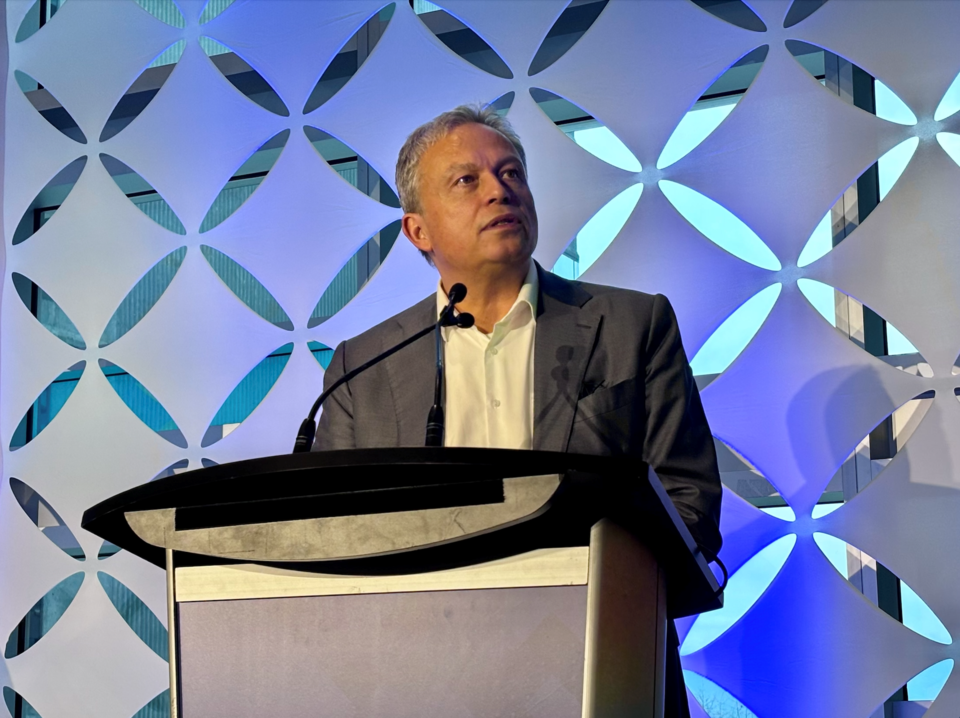NATO’s chief information officer was among several keynote speakers at an international security conference in Vancouver this week, telling delegates that Russia, Iran, China and North Korea are chief cybersecurity adversaries.
Manfred Boudreaux-Dehmer also expressed confidence that NATO (the North Atlantic Treaty Organization) will remain a strong political and military partnership among 32 member states, despite the longstanding and now-renewed criticisms of the organization by U.S. president-elect Donald Trump.
Since the Nov. 5 U.S. presidential election, speculation has swirled as to what Trump envisions for the alliance.
Chief among Trump’s stated concerns is member states not paying two per cent of GDP toward NATO costs. Trump had stated during his campaign he would “encourage” Russia “to do whatever the hell they want” to NATO allies who don’t spend enough on defence, Politico reported in its Nov. 8 analysis of the matter.
But when asked at the Vancouver International Security Summit on Tuesday if he shares concerns about NATO continuing to exist during Trump’s second term, Boudreaux-Dehmer downplayed those concerns.
“This will be the second term of Donald Trump. We have had Donald Trump before in terms of president and NATO was fine,” he said.
“Sometimes what politicians say and what they do can be different,” added Boudreaux-Dehmer, who also did not express concern that Trump’s second term will see a Republican-controlled Congress and Senate, plus Republican-appointed majority on the Supreme Court.
Trump’s selection of Tulsi Gabbard as director of national intelligence has also drawn criticism from Democrats and analysts who accuse Gabbard of parroting Russian propaganda and being an outspoken critic of U.S. assistance for Ukraine to defend itself against Russia’s military invasion.
That appointment comes after longstanding concerns Kremlin-directed disinformation networks favoured Trump campaigns.
Boudreaux-Dehmer spent part of his address highlighting the “crude” cybersecurity threat Russia poses to NATO itself as well as businesses and civil society within member states.
“They have the goal of disruption, especially with regard to critical infrastructure …in areas that serve their strategic purposes,” he said, referring to Russia’s attack on electrical and water grids in Ukraine since its February 2022 invasion.
“Russia’s very active in disrupting” civilian infrastructure but also “a master of disinformation” on electoral processes of democracies around the world, said Boudreaux-Dehmer.
“The effect that they have had on elections is not known and may never be known but I am convinced it is significant.”
Despite his analysis of subversive Russian activity and questions about whether the Trump administration accepts such an analysis, Boudreaux-Dehmer expressed confidence Ukraine would remain supported by allied states.
“I think a lot of people are speculating about what’s going to happen on Jan. 20 and beyond when he gets into the office. He’s been very vocal about saying that the first 24 hours the war in Ukraine will stop.
“I don’t quite really expect that is going to happen. This might fall into the category of a statement that is very heady and then we’ll see what’s happening,” he said.
The first chief information officer NATO ever appointed (in 2021) also spoke to the increased threats member states are seeing in cyberspace from the four chief threat nations.
NATO had normally organized its defences under the banners of land, air and sea but “cyber” has become a fourth mandate, said Boudreaux-Dehmer, the former information technology systems director for Sierra Wireless in Vancouver, from 2010 until 2021.
And while Russia is “crude,” China acts in “stealth mode” as “they want to bury into infrastructure and at the right time they will be there," said Boudreaux-Dehmer.
Meanwhile, North Korea has expanded its ransomware and fraud efforts against businesses in NATO states and Iran is more engaged with the Israel-Hamas conflict, noted Boudreaux-Dehmer.




